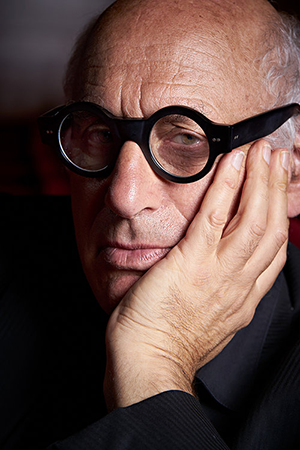In the vast tapestry of 20th-century music, few threads shine as brightly or as distinctively as that of Michael Nyman. Born on March 23, 1944, in Stratford, East London, Nyman would grow to become a titan of minimalist composition, leaving an indelible mark on both the classical and film music worlds.
Picture a young Michael, his fingers dancing across piano keys in a modest East London home. The son of a kosher butcher, Nyman’s early life was steeped in the rich cultural melting pot of post-war Britain. As a child, he’d often sneak into the local cinema, not just to watch films, but to lose himself in their soundscapes. Little did he know that these stolen moments would plant the seeds for a career that would revolutionize film scoring.
Nyman’s formal musical education began at the Royal Academy of Music, where he studied composition, piano, and music history. But it was his time at King’s College London that truly shaped his musical philosophy. Here, he delved deep into the works of early music composers, particularly Henry Purcell. This fascination with the past would later infuse his minimalist compositions with a unique, historically-informed flavor.
The 1960s saw Nyman wearing many hats. He worked as a music critic, coining the term “minimalism” in a 1968 review – a label that would later be applied to his own work. He edited scores for the publishing house Schott Music, and even tried his hand at libretto writing. Each of these experiences was a brushstroke on the canvas of his developing musical identity.
But it was in the 1970s that Nyman truly found his voice. Inspired by the repetitive structures of minimalism and the harmonic simplicity of early music, he began crafting a style that was uniquely his own. His breakthrough came with “In Re Don Giovanni” (1977), a piece that reworked Mozart’s opera into a pulsating, hypnotic minimalist masterpiece.
Nyman’s career took a cinematic turn in 1976 when he met filmmaker Peter Greenaway. Their collaboration would produce some of the most memorable film scores of the late 20th century. “The Draughtsman’s Contract” (1982) showcased Nyman’s ability to blend period instruments with modern minimalist techniques, creating a sound that was both familiar and startlingly new.
But it was his score for Jane Campion’s “The Piano” (1993) that catapulted Nyman to international fame. The haunting melodies and driving rhythms perfectly captured the film’s themes of passion and repression. The soundtrack album sold millions of copies worldwide, introducing Nyman’s music to a broader audience than ever before.
Throughout his career, Nyman has been a restless innovator. He formed the Michael Nyman Band in 1976, an ensemble that became the primary vehicle for his compositions. With its unique instrumentation – including saxophones, bass trombone, and electric bass – the band brought a rock-like energy to Nyman’s classical structures.
Nyman’s work extends far beyond film scores. He has composed operas, string quartets, concertos, and even a series of songs based on Shakespearean texts. His music has been performed in concert halls around the world, from the Royal Opera House in London to the Sydney Opera House.
In recent years, Nyman has expanded his artistic horizons even further. He’s ventured into photography and filmmaking, creating multimedia works that blend his visual and musical sensibilities. His ongoing series of “War Work” films and compositions reflect his deep engagement with social and political issues.
Despite his success, Nyman remains a controversial figure in some musical circles. Critics have accused him of being overly repetitive or simplistic. But for his fans, this is precisely the point. Nyman’s music strips away unnecessary complexity, revealing the hypnotic power of pure rhythm and melody.
As he enters his eighth decade, Michael Nyman shows no signs of slowing down. He continues to compose, perform, and push the boundaries of what music can be. His legacy is not just in the notes he’s written, but in the doors he’s opened for future generations of composers.
From that young boy in East London to a globally renowned composer, Michael Nyman‘s journey is a testament to the power of artistic vision and relentless innovation. His music, whether heard in a concert hall or a cinema, continues to move, challenge, and inspire listeners around the world.

